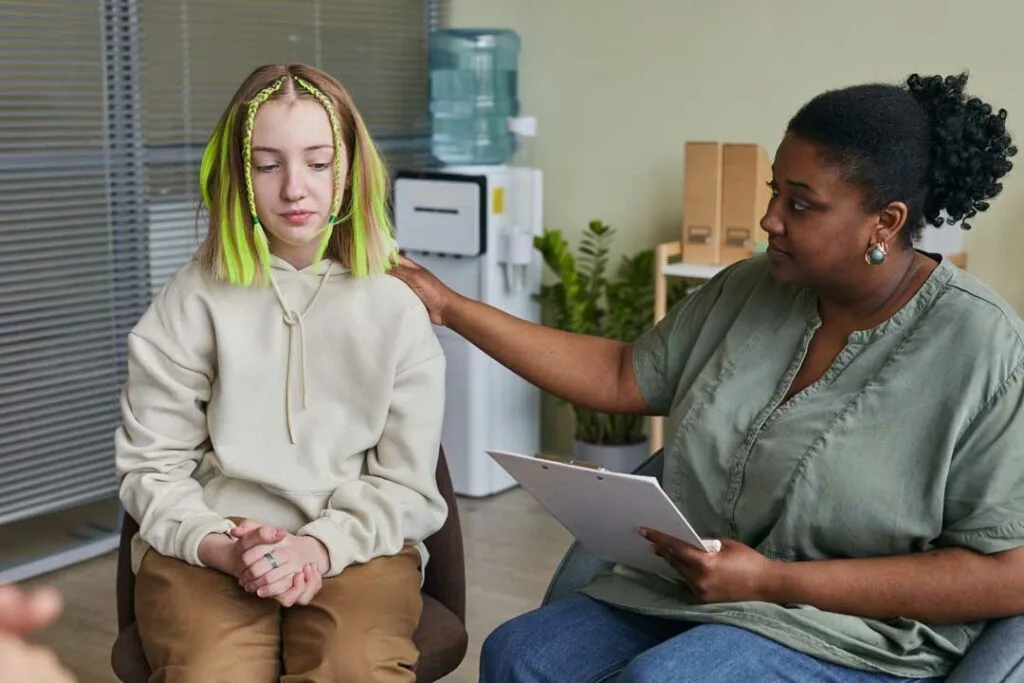Residential programs for teens in Washington can be life-changing—but only if you know the right questions to ask before choosing one.

Parents living in Washington who are considering residential care for their teen face an important choice that can significantly impact their child’s future. It can feel overwhelming as they look at different options, trying to understand what will best support their family’s needs.
What to Ask Before Choosing Residential Programs for Teens in Washington
Knowing what questions to ask before choosing a residential program helps parents make confident and informed decisions. Learning about residential programs for teens in Washington helps families identify the care and support available in their area. Considering programs in nearby regions can also offer additional options and resources.
What specific mental health treatments and therapies are offered at the facility?
Parents should ask what types of therapy are available at the residential program. Many facilities offer a combination of individual therapy, group counseling, and family therapy. Understanding these options helps families choose a program that meets their child’s specific needs.

It is also important to ask whether the facility uses evidence-based treatments. Programs may include cognitive behavioral therapy (CBT), dialectical behavior therapy (DBT), or medication management. Some centers also provide support for substance use alongside mental health care.
Parents should find out if the staff are trained to treat specific conditions such as depression, anxiety, or bipolar disorder. The variety and quality of available therapies can significantly influence outcomes.
Is the residential program licensed and accredited by Washington state regulatory bodies?
Parents should confirm that the program holds current licenses from Washington state authorities. In Washington, residential treatment facilities must be licensed by the Department of Health to provide 24-hour care for individuals with mental health or substance use needs. Licensing ensures the facility meets state standards for safety and quality.

Accreditation is also important. Some programs earn accreditation from independent organizations, demonstrating they meet higher standards for care, staffing, and operations. However, state licensing is required by law.
Families can check a facility’s licensing status online through the Washington State Department of Health. Reviewing both licensing and accreditation helps protect families and ensures access to high-quality care.
What qualifications and credentials do the clinical and support staff hold?
Parents should ask about the education, training, and licenses of the clinical staff. In Washington, therapists and counselors typically hold degrees in psychology, social work, or counseling, along with active state licenses.
Support staff qualifications can vary. Some roles require certification or specialized training, while others may involve on-the-job training after a high school diploma. Families should inquire about the specific training of staff who work directly with teens.

Credentialing shows that staff meet professional standards, including education, supervised experience, and appropriate licensing. Learning about the qualifications of both clinical and support staff can reassure families that their child will receive care from a capable team.
How does the program handle medical emergencies and ongoing health care?
Parents should ask how medical emergencies are managed and whether staff are trained to respond to urgent situations, such as injuries or sudden illnesses.
It is important to know if doctors or nurses are on-site or available on-call. Some programs have medical professionals present 24/7, while others rely on outside providers.

Families should also ask how the program manages daily medications and ongoing healthcare needs. This includes how medications are administered, health records are maintained, and updates are shared with parents. Programs should follow established standards for emergency preparedness and clear communication about a child’s health.
What support services are available for families during and after treatment?
Many programs offer support services to families both during and after a teen’s treatment. These may include family therapy, support groups, and educational sessions that explain mental health and recovery. Such services can improve communication, strengthen relationships, and prepare families to support their teen at home.

Families often benefit from connecting with others who have gone through similar experiences. Programs may also provide tips for ongoing support and resources after discharge.
Helplines are available 24/7 for families needing immediate help. For example, the SAMHSA National Helpline provides free, confidential support, information, and referrals to local resources for mental health and substance use issues. Many treatment centers also continue to support families after discharge through follow-up counseling and recovery resources.
Key Questions for Parents Considering Teen Residential Treatment in Washington
When choosing a residential program, parents should ask about staff credentials, treatment approaches, safety procedures, and how progress is monitored. Understanding family involvement and aftercare options can help families feel more confident in their decision.
Careful research and direct questions ensure that the program meets the child’s needs and supports their long-term well-being.

Jessi is the creative mind behind The Coffee Mom, a popular blog that combines parenting advice, travel tips, and a love for all things Disney. As a trusted Disney influencer and passionate storyteller, Jessi’s authentic insights and relatable content resonate with readers worldwide.
